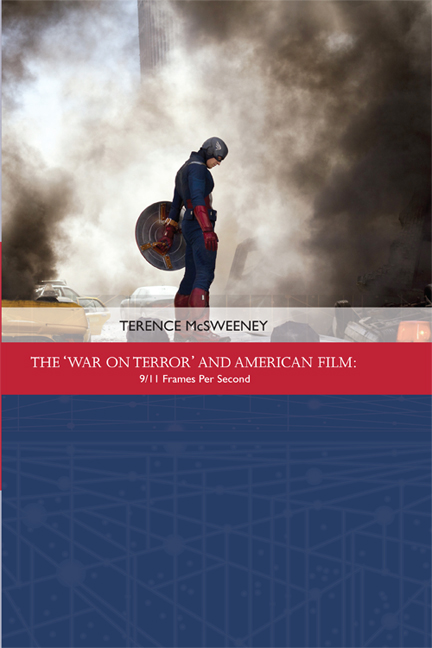Book contents
- Frontmatter
- Contents
- List of Illustrations
- Acknowledgements
- Introduction
- 1 The Lives of Others: Vulnerability in Post-9/ 11 American Cinema
- 2 Boots on the Ground: The New Millennial Combat Film as Cultural Artefact
- 3 ‘Masters of our own Security’: Redemption through Violence in the Post-9/ 11 Action Genre
- 4 Turning to the Dark Side: Challenging American Mythology in the Superhero Genre
- 5 Remaking 9/11: Imagining the Unimaginable in the Alien- invasion Film
- 6 Decade of the Dead: Zombie Films as Allegory of National Trauma
- 7 The Rise and Fall of Empires: The ‘War on Terror’ as Allegorical Moment in Historical Film
- Conclusion
- Bibliography
- Select Filmography
- Index
2 - Boots on the Ground: The New Millennial Combat Film as Cultural Artefact
Published online by Cambridge University Press: 05 August 2016
- Frontmatter
- Contents
- List of Illustrations
- Acknowledgements
- Introduction
- 1 The Lives of Others: Vulnerability in Post-9/ 11 American Cinema
- 2 Boots on the Ground: The New Millennial Combat Film as Cultural Artefact
- 3 ‘Masters of our own Security’: Redemption through Violence in the Post-9/ 11 Action Genre
- 4 Turning to the Dark Side: Challenging American Mythology in the Superhero Genre
- 5 Remaking 9/11: Imagining the Unimaginable in the Alien- invasion Film
- 6 Decade of the Dead: Zombie Films as Allegory of National Trauma
- 7 The Rise and Fall of Empires: The ‘War on Terror’ as Allegorical Moment in Historical Film
- Conclusion
- Bibliography
- Select Filmography
- Index
Summary
Lurking beneath the surface of every society, including ours, is the passionate yearning for a nationalist cause that exalts us, the kind that war alone is able to deliver. It reduces and at times erases the anxiety of individual consciousness. We abandon individual responsibility for a shared, unquestioned communal enterprise, however morally dubious.
Chris Hedges, War is a Force that Gives Us MeaningAfter the attacks on 11 September 2001 the Bush administration quickly arranged extensive meetings with top Hollywood executives, some even at the White House itself, in a concerted effort to help market the war on terror through the medium of film, just as President Franklin D. Roosevelt had sought to mobilise Hollywood during World War Two through the Office of War Information (OWI). Many promptly got onboard; Bryce Zabel, the chair of the Academy of Television Arts & Sciences, declared, ‘We are willing to volunteer to become advocates for the American message’ (cited in Cooper (2001)). From the very beginning George W. Bush sought to define the American response to 9/11, as the administration's mantra became, ‘You are either with us or you are with the terrorists’ (Bush 2001) with little room for nuance or historical awareness. The war on terror was not only to be a military one, it was also to be a war of ‘hearts and minds’, with not just Iraqis and Afghanistanis as the target, but American citizens as well. This chapter explores combat films made in the war on terror era and asks how the first American wars of the new millennium have been represented on-screen when compared to films made about World War Two and the Vietnam War. While films about the Vietnam War did not emerge (with one or two notable exceptions) until after the conclusion of the conflict in 1975, a substantial number of films about the conflict in Iraq and Afghanistan were released while the war was being fought, even as early as 2005 with the release of Sidney J. Furie's American Soldiers: A Day in Iraq. Prior to the new millennium, the Vietnam War had been a national point of crisis which filmmakers had periodically returned to in an attempt reconcile it to the national imaginary.
- Type
- Chapter
- Information
- The 'War on Terror' and American Film9/11 Frames Per Second, pp. 59 - 80Publisher: Edinburgh University PressPrint publication year: 2014



